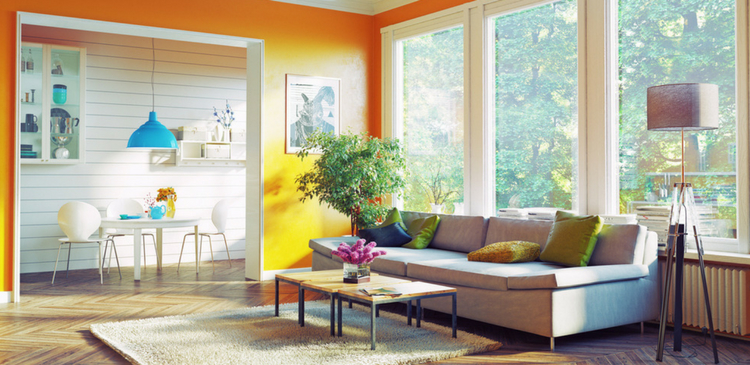
What is the Best Humidity Level for a Home
Humidity can be annoying. It turns a warm, sunny day into a muggy, sticky sauna. It puts some people in a foul mood. And the sweating can make you feel like you’re melting. Moreover, that’s just outside. If it’s too humid indoors, the list of woes goes on.
Is there anything you can do about it? And if so, what should the humidity level be in your home?
What Causes Humidity?
Air is composed of oxygen, nitrogen, a minute amount of other gases, and water vapor.
Humidity is the amount of water vapor that’s present in the air.
The air in warmer climates holds more water vapor than cool air. When the air becomes saturated, dew starts to form. Outdoors, this excess moisture makes it harder for precipitation to evaporate. Indoors, it becomes a breeding ground for bacteria.
Effects of Humidity On Your Health and In Your Home
Dust mites, cockroaches, mold spores, and fungus all thrive in humid environments. So when it’s humid inside a home, you’ll have these bugs and organisms thriving. As if that weren’t bad enough, you’ll also have dust mite and cockroach feces. Yuck! Even if you can’t see them, you can still breathe them. This is why high humidity levels are a culprit for so many respiratory issues. In fact, most chronic sinus infections are a result of mold exposure.
Furthermore, you’ll have to worry about the damage caused by the mold to your personal items and your home’s structure. Water damage, rotting wood and drywall, and unsightly spots on walls and ceilings can result in tens of thousands of dollars in repair costs. And even before you notice the visible effects of excess humidity in your home, be aware of this: An air conditioner works by absorbing the humidity from the air, siphoning the condensation outside, and returning cool air. The more humid the environment, the harder the AC has to work to remove moisture. This translates to higher energy bills.
No matter how you look at it, uncontrolled humidity levels in your home are detrimental. Therefore, it makes sense to install a dehumidifier and a humidistat in order to control the excess moisture in the air.
What Is the Ideal Humidity Level for Your Home?
The optimal humidity level depends on the time of the year. During cooler months, set the humidistat to 60%. During warmer months, set it to 40%. These levels will keep the moisture inside your home under control.
Call Our HVAC Professionals at A Plus Air Conditioning and Let Us Help You!
No matter the issue with your air conditioner, we can assist you. We provide installation, maintenance, and repair services throughout North Central Florida. And because we understand that a working air conditioner is essential in Florida, we offer 24/7 AC emergency service.
Call us at (352) 374-4988 and let us get your AC back to proper working order.


